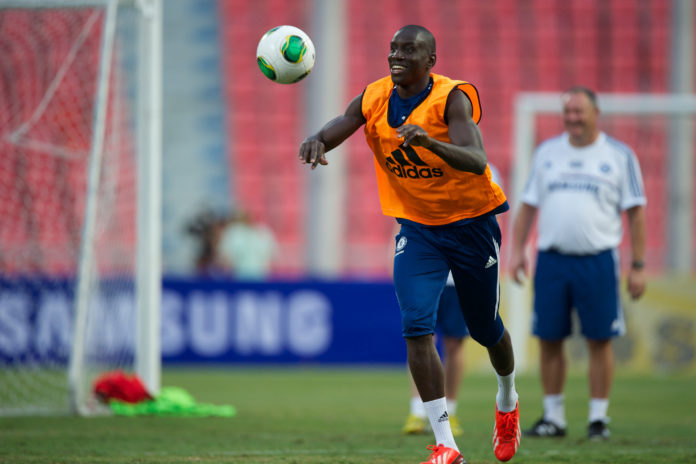Najm Al-Din argues that Muslim footballers are purifying a tarnished sport.
Football is a gentleman’s game played by thugs. Or at least that’s the reputation lived up to by some of the game’s most coveted stars.
Over the years, Premiership footballers have run up a catalogue of misdemeanours, from training ground bust-ups and ill-tempered dressing room spats to lurid off-the-pitch antics bringing their behaviour into sharp focus. However, this hasn’t stopped numerous footy fans from using the Football Index Analysis and investing in their favourite teams.
We were all (and probably still are) reeling with shock following Wayne Rooney’s rendezvous with crack whores, including a grandmother and mum-of-seven, while his pregnant wife and childhood sweetheart Coleen writhed in fury. I remember the infamous moment when Joey Barton flashed his rear at Everton fans, not to mention the numerous incidents of assault and affray which the midfielder has been caught up in.
The list of allegations and misconduct are too many to mention and reflect how the moral compass of some of our most prized sportsmen have gone so far down the plug hole, plunging their images and lives into high-profile meltdown.
But the reputation of footballers at the top flight is not beyond repair. A new generation of players may be opening the floodgates to a slightly more sober and dignified culture than the one represented by the sport’s most archetypal bad boys.
Muslim Premier League
Subscribe to our newsletter and stay updated on the latest news and updates from around the Muslim world!
A recent BBC One Documentary called “The Muslim Premier League” highlighted the impact which observant Muslim players were having on the sport. Featuring interviews with Chelsea striker Demba Ba, Arsenal midfielder Abou Diaby and Wigan Goalkeeper Ali-al-Habsi, their lives offered a fascinating insight into a new ingredient brewing in the lives of premiership footballers – spirituality.
Their struggles to reconcile faith and profession were many – the dilemma of fasting during match day, remaining vigilant of their five daily prayers, requesting halal food and private ablution facilities as well as other demands keeping with faith. In each case, Islam was used to negotiate their way through the playing field.
But it isn’t simply a ritual list of do’s and don’ts which makes the religious character of these players so markedly different from your average Premiership footballer. Rather, it was the snapshots capturing them at poignant moments of prostration, supplication and what seemed like an infinite grace that was such a far cry from the often yobbish pastimes of footballers.
By accommodating the religious needs of Muslim footballers comes a supplementary lesson which sporting tearaways like John Terry and Joey Barton can benefit from: that a religious and spiritual outlook on life can breathe soul in a culture which desperately lacks a higher calling.
Puritanism
As far-fetched as it may sound, with the ushering of religious dictates into English football, we may be witnessing the return of Puritanism in the game. And the kind of puritanical values upheld by Muslim players are to some extent a throwback to British pieties during the 17th Century, which would have certainly cautioned against if not prevented the aforementioned footballers from indulging in the vices which have made their personal lives a slow-motion train-wreck.
In a game often marred by the unsportsmanlike conduct and misbehaviour of its professionals, faith offers a much needed balance to the ugly frolics footballers are so wrapped up in and ironically, offers among other things its own fix of adrenalin – a more serious meditation on life which many footballers would not have experimented with or experienced before.
Keeping with the British proclivity for respecting differences, there’s something principled about teetotal footballers like Yahya Toure politely refusing a bottle of champagne as a post-match honour, or Papa Cisse placing his club’s sponsorship deal with moneylenders Wonga in jeopardy by refusing to wear their logo on his shirt on the grounds that it promotes unethical banking.
Whether we believe in an Almighty or not, the sight of Demba Ba clutching to his knees and placing his forehead on the ground as a gesture of thanks to God for a screamer or a tap-in, suggests there are humbler ways of celebrating our triumphs than the ones too often associated with our glorification of pomp and razzmatazz.
In these rare acts of holiness are lessons which should make us sit up and take notice of the values which inspire the very footballers we venerate from the terraces. If we let it pass as just another eccentricity in multicultural Britain, we make the fateful mistake of not identifying what could really help curb the plague of celebrity wrongs and excesses.
At the very least, we owe the players who featured in the documentary a single acknowledgement – that maybe, just maybe, their lives are happier and more wholesome than the orgy-inclined footballers who remind us of one big cultural accident. Muslim footballers are proving that religion not only survives in a material world, but can also claim an ambiguous advantage within it.


















